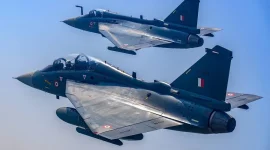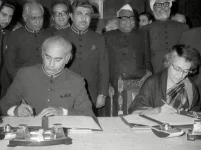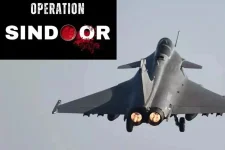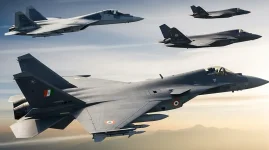- Views: 873
- Replies: 2
India's significant position as a global supplier of artillery ammunition has come under intense scrutiny amidst recent military confrontations with Pakistan and what some observers describe as a noticeable pro-Pakistani slant in European media coverage.
This situation is further complicated by reports suggesting that Indian-manufactured 155mm artillery shells, originally destined for other European buyers, have been diverted to Ukraine through European intermediaries. This occurs despite New Delhi's official policy of neutrality in the ongoing Russia-Ukraine conflict.
The heightened tensions with Pakistan, highlighted by India's "Operation Sindoor" and subsequent retaliatory military actions from Pakistan, coupled with a persistent pro-Pakistani sentiment observed in sections of the European press, are prompting serious strategic and diplomatic questions.
These concerns revolve around India's continued, albeit indirect, supply of ammunition to European nations who are then reportedly redirecting these supplies.
Since 2022, India has solidified its role as a major producer in the international arms market. The nation's defence industry has been manufacturing substantial quantities of artillery shells, with a particular focus on 155mm rounds. These rounds are compatible with NATO-standard howitzers, such as the M777 artillery pieces.
While India maintains it has not directly supplied ammunition to Ukraine, several reports indicate that some European countries have procured Indian-made shells and subsequently transferred them to Kyiv.
Open-source data estimates suggest that close to 10,000 Indian shells may have reached Ukraine in 2024 alone, accounting for approximately 1% of Kyiv’s total arms imports during that period.
This indirect supply chain has not gone unnoticed by Russia, a key strategic partner for India. Moscow has reportedly voiced its concerns regarding these diversions during high-level diplomatic engagements, including a meeting between Russian Foreign Minister Sergei Lavrov and his Indian counterpart in July 2024.
India’s Ministry of External Affairs has consistently denied any direct exports to Ukraine, emphasising its commitment to end-user agreements that strictly prohibit unauthorised transfers of military hardware. However, critics point to a potential lack of stringent oversight concerning European intermediaries, which may have allowed these diversions to occur, placing India in a diplomatically sensitive position.
The recent flare-up in hostilities between India and Pakistan was triggered by a terrorist attack on April 22, 2025, in Kashmir, which resulted in the tragic loss of 26 tourist lives. India responded with "Operation Sindoor," which involved precision missile strikes targeting nine alleged terrorist camps situated in Pakistan and Pakistan-occupied Kashmir. Indian officials claimed these strikes resulted in the elimination of over 80 militants.
Pakistan launched retaliatory drone and missile attacks, including strikes on civilians and religious worship places, pushing the conflict to its most severe point in decades.
A fragile ceasefire was announced on May 10, 2025. However, sporadic violations continue, underscoring the volatile nature of the regional security situation.
Amidst this escalating conflict, some European media outlets have faced criticism for allegedly displaying a bias favouring Pakistan. Such reports often portray India as the aggressor, while downplaying Pakistan’s historical record regarding support for terrorist groups like Jaish-e-Mohammed (JeM). India accuses JeM of orchestrating the deadly attack in Kashmir.
Articles in European publications such as Politico and the European Business Review (notably one titled “Lessons from the India vs Pakistan air clash: a wake-up call for Europe”) have highlighted Pakistan’s military capabilities, including the biased effectiveness of its Chinese-made J-10C fighter jets and PL-15E missiles, while characterising India’s retaliatory actions as escalatory.
Indian sources argue that these narratives often omit crucial context regarding Pakistan's alleged role in sheltering terrorists, an issue India has consistently raised internationally, supported by evidence including survivor testimonies from the April 22 attack.
This perceived media bias is viewed by some analysts as particularly concerning given Europe's own reliance on ammunition supplies from Pakistan to support Ukraine. Since 2022, Pakistan has reportedly supplied over 60,000 artillery shells, including 122mm rounds compatible with Grad rocket launchers, through various routes involving the UK, Romania, and Poland.
Observers suggest that the sympathetic portrayal of Pakistan by some European media entities could be influenced by its role as a critical ammunition supplier. This situation, they argue, risks creating a double standard that potentially undermines India’s legitimate security concerns and its calls for accountability regarding cross-border terrorism.
The convergence of these factors is leading to growing calls within India to reassess its ammunition export policies, particularly towards nations perceived as not acknowledging its security imperatives.





